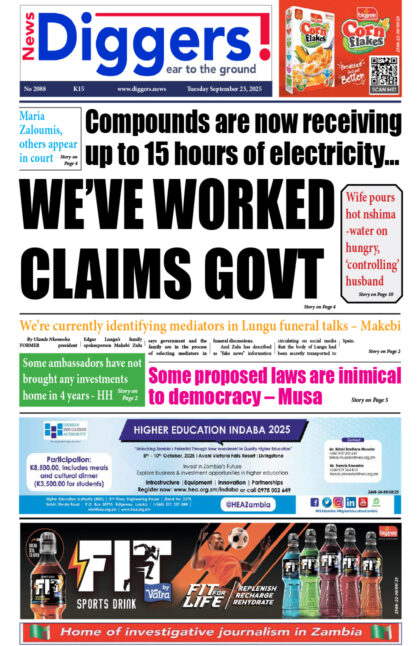Opposition Alliance chairperson Charles Milupi has revealed that the Alliance will challenge the National Dialogue Bill that Parliament passed last week, awaiting presidential assent.
Speaking when he featured on United Voice Radio, Wednesday, Milupi said the Alliance was of the view that the National Dialogue Bill was in conflict with the Republican Constitution on fundamental human rights, hence the decision to take the matter to court for judicial review.
“We think that it anomalous. There is a misconception that maybe we don’t have a Bill of Rights in this country, we do have a Bill of Rights in this country. What failed at the national referendum of 2016 was the enhancement of the Bill of the Rights that they wanted to bring in. So, even with the failure of that, we still have the existing Bill of Rights because you can’t change that. That Bill of Rights confers on citizens basic human rights, such as freedom of speech, freedom of assembly, freedom of association and others. And in our view, if you look at the way that Bill is structured, it infringes on a number of these rights and if it does so, it means it’s ultra vires to the Constitution. And the Constitution is very specific: any law that outweighs the Constitution is an anomaly and that has to be tested,” Milupi said.
“As the Opposition Alliance, one of the things that we are looking to test through a judicial review. People must know that they have rights; it’s not just the President who must say ‘I will assent to this Bill’ and so on. We have rights to approach the court and have some of these matters tested and the Opposition Alliance is putting together our facts, and within this week we should be in a position to file documents to that effect.”
Milupi explained that the Alliance was concerned with the high number of people proposed in the Bill to represent government at the so-called Dialogue Forum.
“What we have seen now is that apart from maligning the three Church Mother Bodies, the government has come up with the National Dialogue Bill, which they recently presented to Parliament. One of the things that we noticed is that instead of having a whole-encompassing national process that brings everyone together, we now see that there are only four areas that they have brought up, that is: the Constitution, the Public Order Act, the Electoral Act and the Political Parties Act. And then we see that many people who are going to participate are civil servants; they are workers in parastatals!” Milupi said.
And Milupi, who is also Alliance for Democracy and Development (ADD) president, said corruption in Zambia was now endemic, with the continued overpricing of government procurement and inflated contracts.
“Corruption in Zambia is endemic! There are various levels of corruption, there is petty corruption that happens in all institutions, you go to school, you want your child to register, someone will ask for this. You go into any government office, someone will ask for that…you want a title deed, someone will ask for that so that they can quicken the process. I don’t have to talk about this because Zambians are going through this every day. Then there is high-level corruption where top officials are involved. And you see now that there are individuals whose role is to get as close to the ruling party and those in power as much as possible, and through that they get contracts, which they are not even in the position to complete, they go and pass them on to other people, such as the Chinese,” said Milupi.
“That’s why now you are seeing the exorbitant overpricing of public procurements, for example, we debated as a nation over the Lusaka-Ndola dual carriageway. I am an engineer myself; I have held top positions dealing with projects. So, when I tell you that the average price of constructing a kilometre of tarred road in southern Africa is about US $300,000, I know what I am talking about. The US $1.2billion that they are saying this dual carriage will cost for this road, which is about 321 kilometres is exorbitant! Look at the Scania (fire) trucks they bought at US $1 million, they looked like second-hand to some of us. For someone to say they cost that much, you know that there was something wrong.”
























